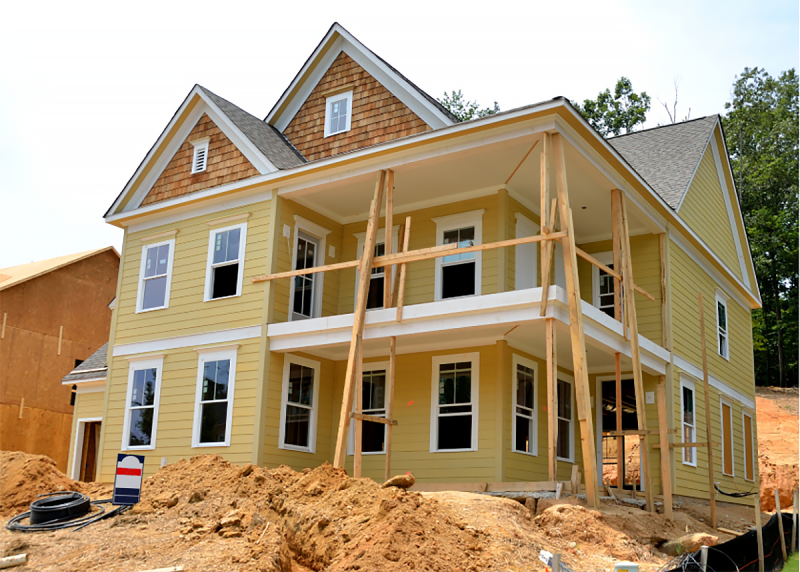Advertisement
Brad A. Morrice becomes New Century CEO
House overwhelmingly approves landmark FHA legislationMortgagePress.comFederal Housing Administration
Disparate voices from across the mortgage industry
landscape—mortgage brokers, mortgage bankers, federal
regulators and legislators—hailed the passage of the
Expanding American Homeownership Act (HR 5121) by the U.S. House of
Representatives in a vote of 415-7 on July 26. HR 5121 is a
legislative proposal that would enable the Federal Housing
Administration to reach deeper into the pool of prospective
borrowers who are currently willing to pay non-prime rates to
become homeowners because they believe they have no other
options.
National Association of Mortgage Brokers President Harry Dinham,
CMC applauded passage of the act, stating that it would expand
access to more affordable loans for traditionally underserved
populations. HR 5121 includes important provisions to revamp costly
annual audit requirements within the FHA loan program that would
allow more mortgage brokers to offer these loans to prospective
homebuyers.
"NAMB worked very hard to ensure language that could make it
easier for more brokers to offer HUD loans was included in the
House bill," said NAMB President Dinham. "Although you can never
say for sure what Congress will do, we are optimistic that the
Senate will pass a bill with similar language, and we will continue
to work toward that end."
HR 5121 would allow mortgage brokers to acquire an annual bond
in place of the audit requirements. This approach would ensure that
the FHA program is protected and addresses cost concerns for many
brokers. Dinham added that since mortgage brokers originate the
vast majority of new home loans nationwide, eliminating the
economic barrier that kept many brokers from participating in the
FHA program will give consumers more home-buying options.
"Expanding the FHA's ability to meet the needs of the
underserved population is important to the administration and
Congress," said Dinham. "We believe the Senate will be able to pass
a bill this year, and we will work both sides of the Senate Banking
Committee to achieve a bi-partisan bill."
Other provisions included in the Expanding American
Homeownership Act would:
• Increase the conforming loan limits for lower- and
higher-cost areas;
• Increase the maximum loan term from 30 to 40 years;
• Balance borrowers' financial profiles and needs with
appropriate premiums;
• Increase loan limits for two-, three- and four-family
residences;
• Make improvements to the FHA Home Equity Conversion
Mortgage program;
• Revise the definition of mortgage to insure condominiums as
a single family unit rather than a multifamily project;
• Eliminate FHA's three percent cash down requirement to
offer no down payment loans; and
• Allow FHA to adjust the mortgage insurance premium to match
the borrower's risk.
U.S. Department of Housing and Urban Development Secretary
Alphonso Jackson added, "I applaud the House for passing this
far-reaching legislation and express appreciation for the
leadership provided by Reps. Bob Ney, Maxine Waters [Calif.], Gary
Miller [Calif.] and Patrick Tiberi [Ohio]. I expect the Senate to
take similar action thanks to the efforts of Sen. Jim Talent [Mo.]
and the support of Sens. Mel Martinez [Fla.], Johnny Isakson [Ga.]
and Saxby Chambliss [Ga.]."
The FHA reform effort is currently stalled in the U.S. Senate.
Banking Committee Chairman Richard Shelby (Alaska) has asked the
U.S. General Accounting Office (GAO) to conduct a study of the
reform proposals; however, some supporters of FHA reform see this
as a delaying tactic. Andrew Gray, spokesman for the Senate Banking
Committee, said that while Shelby didn't have a timeline for
committee action on the reform proposal, "we realize the FHA is in
need of reform." He also noted that the GAO study was not a
prerequisite for committee action.
President Bush is calling on the Senate to pass this bill,
stating, "This bill will improve FHA's ability to help lower- and
moderate-income families achieve the American dream. I encourage
the Senate to join the House and pass this critical
legislation."
"At this time, NAMB's leadership is working with contacts within
the Senate to ensure that the Senate bill contains broker-friendly
language," noted Dinham. "We think this will be effective, however,
when Congress returns and if we sense things are not going as we'd
hope, we'll call on the power of our members and ask them to urge
their senators to support easing the requirements for brokers."
For a copy of HR 5121, visit www.house.gov.
About the author




